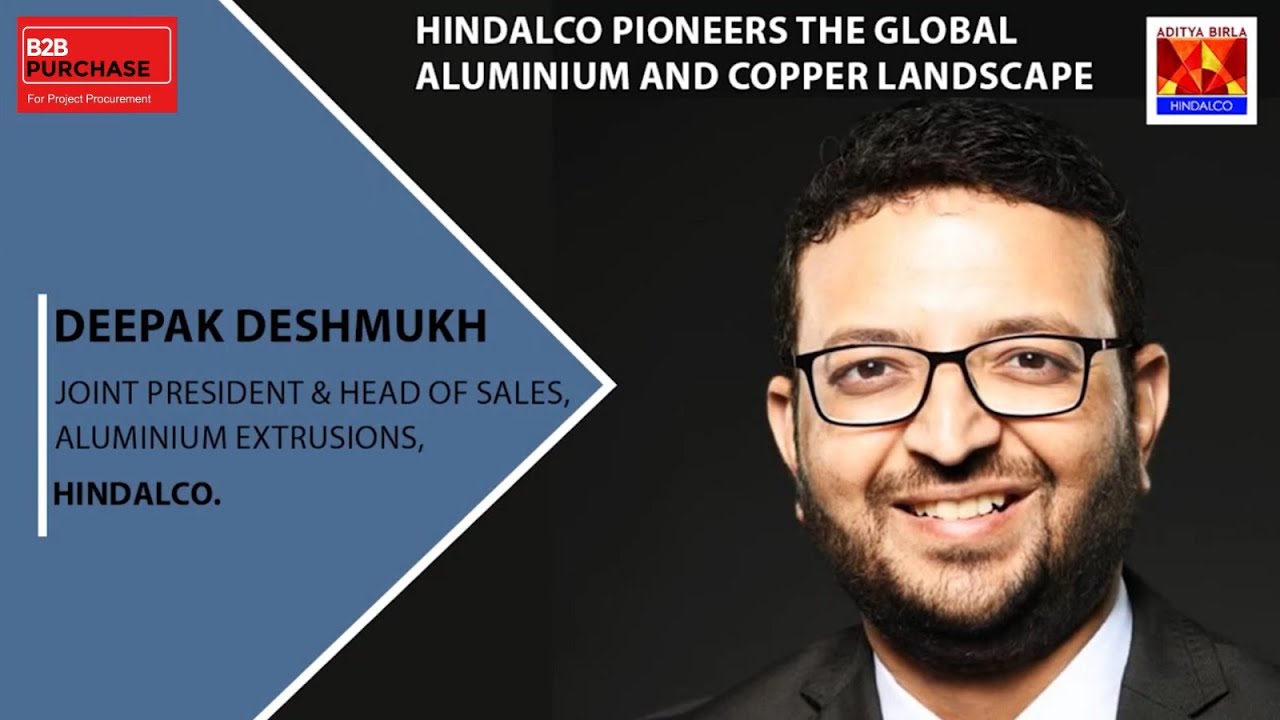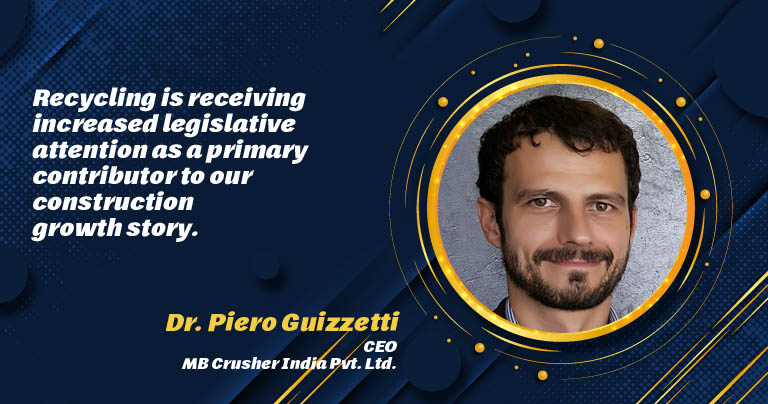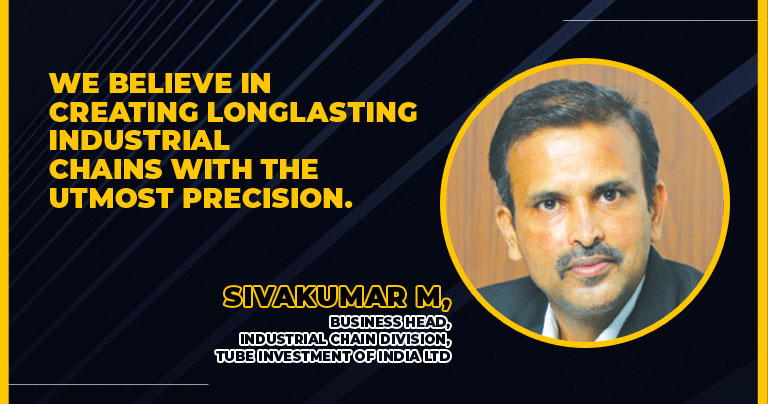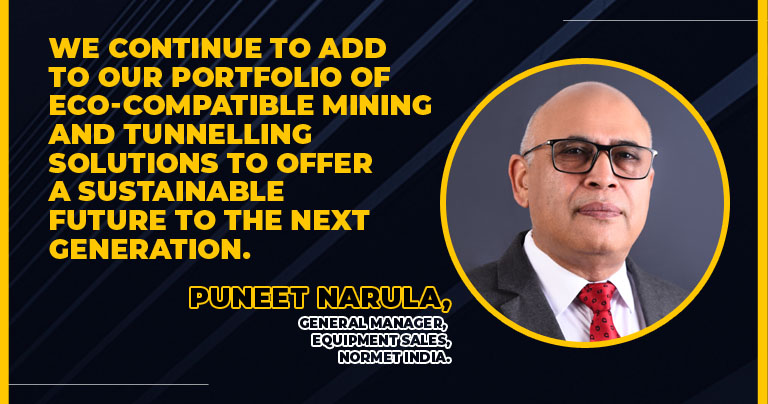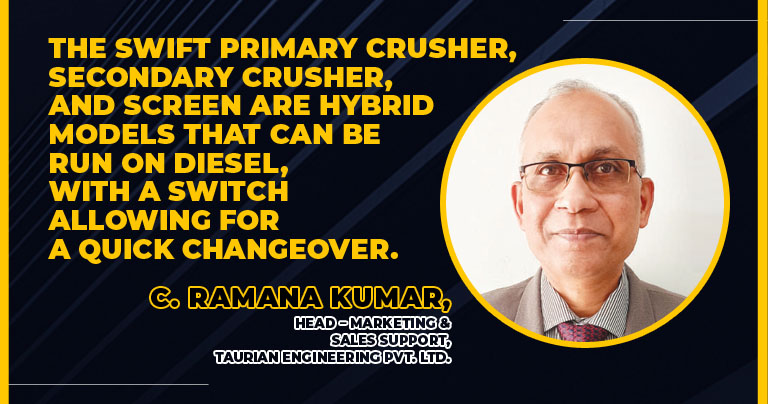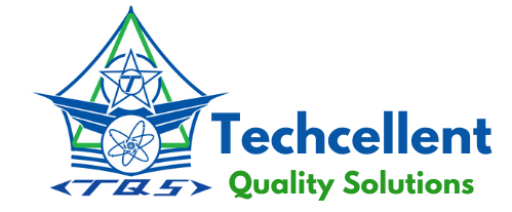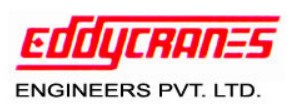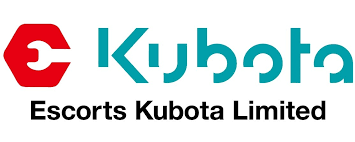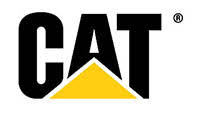Volvo CE to develop fuel-efficient and sustainable products
By Edit Team | June 20, 2022 12:59 pm SHARE
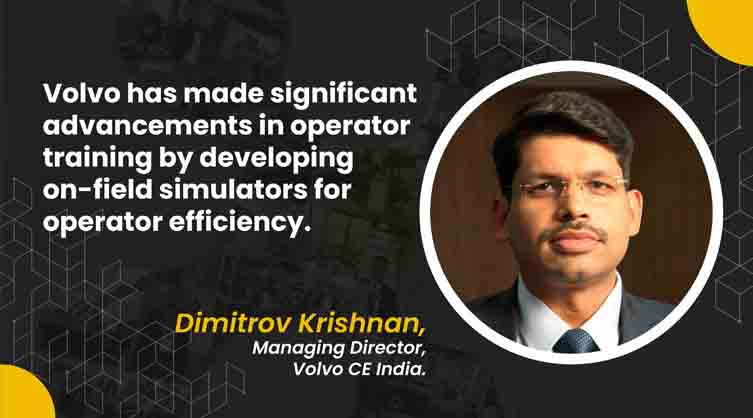
Dimitrov Krishnan, Managing Director, Volvo CE India. In an interview with B2B Purchase.
Volvo CE has exhibited its latest 9-meter paver machine, which we have started manufacturing in India. Further on display, we had Volvo Range of Road Machine Products, including SD 110 CD Soil Compactor, P7320 ABG Track Paver, and DD 90C Asphalt Compactor. The SD 110 CD Soil Compactor features infinite variable frequencies as standard, offering greater flexibility to the operator to fine-tune performance. The machine’s optimised centrifugal force improves ease of operation and productivity. The Volvo Traction System delivers excellent climbing capabilities – essential on steep inclines or slippery surfaces. The Compactor can quickly and easily convert from a smooth drum to a Padfoot drum by clamping on a Padfoot shell. That allows the machine to work in different applications, explains Dimitrov Krishnan, Managing Director, Volvo CE India.
Products and applications for roads and bridges
During the event, all of the displayed products are for the road segment. Because we have a significant market presence in the mining sector, we also have mining applications on exhibit. In this area, we’re also targeting small customers, little jobs, and utility work; therefore, we’ve displayed 8-tonne and 20-tonne tiny excavators. We also have machines that can conduct specialised tasks such as tunnelling and various other jobs. To be more specific, we are meeting the needs of every segment.
Intelligent features and technologies Volvo has always prioritised fuel efficiency, evident across the board. Customers receive not just fuel-efficient items but also a quote from us exclusively. As a result, customers want to work on the entire machine with us when they come to us.
On the service side, we believe in providing our consumers with a one-stop-shop and taking full ownership of the product. Most of our large machines are telematics-enabled, and Volvo was the first firm to introduce telematics to the market 15 years ago. We offer numerous telematics functions, such as sending alerts during a problem, updating status, and enhancing fuel efficiency whenever and wherever necessary.
Challenges in communication and training for remote operators
Volvo has taken a significant stride in this approach by deploying simulators on the battlefield. We provide a variety of operator training programs in which we send our employees to customer sites for on-the-job training. However, to teach an operator, the customer must leave their equipment idle, providing another issue. So, we decided to make this a one-time investment and develop a simulator that will be mounted on your machine/vehicle inside a container. This vehicle goes to various sites to train operators and improve their skill sets. It takes them to the next level by ensuring they understand all the product features. Then you can be certified by us. As a result, clients will be able to hire and train operators that are significantly more skilled than they currently are.
Dealing with supply chain challenges
As we acquire raw material supplies from China, Japan, and Korea, the issues today are primarily in terms of timetable and import cost.
Fluctuating demand has been one of the most significant problems for us regarding supply chain management, particularly until March 2021. Although, with the second wave of COVID, the impact got reduced. However, as a manufacturing organisation, we must be prepared to deal with massive swings in demand.
Capitalising on infrastructural opportunities
Our primary focus is on distribution and improving the localisation of our products. On the operational side, we’re expanding our capacity range internally. We’re also beefing up our distribution network to get closer to end customers while concentrating on our core competencies.
Investments and R&D in innovation
For the road product, we have an extensive research and development staff. We do everything from a blank sheet of paper to complete machines, whether all the contractors are properly planned and represented. We do the same thing with pavers, and we’re just getting started with excavators, so we’ll be doing more R&D in India. Apart from that, we do a lot of R&D for the rest of the world. For example, we have an electronics team and an embedded software team who conduct a lot of testing, verification, and programming. They own many electronic products that come out of here, all of which are for worldwide products. ICEMA’s vision for the construction equipment sector.
We set specific goals in the ICEMA Vision Plan 2030, which we released in late 2020, for the CE industry in India to triple its volume. It can triple its volume and fivefold its exports. One of our main objectives is to achieve this. We have three areas to work on to do this. One is demand generation, in which we collaborate with several government agencies. We’ll need to cooperate with several ministries to ensure that the maritime industry can contribute to their way of working because it’s not just about planning.
Then there are the operating ecosystems for indigenisation and the economic environment. The third element is that of technology and long-term sustainability. In the technology area, it’s about how we can do more R&D work in India to develop more future looking regulations driving better products, adopting cleaner products, and skilling operators and owners.
Cookie Consent
We use cookies to personalize your experience. By continuing to visit this website you agree to our Terms & Conditions, Privacy Policy and Cookie Policy.


